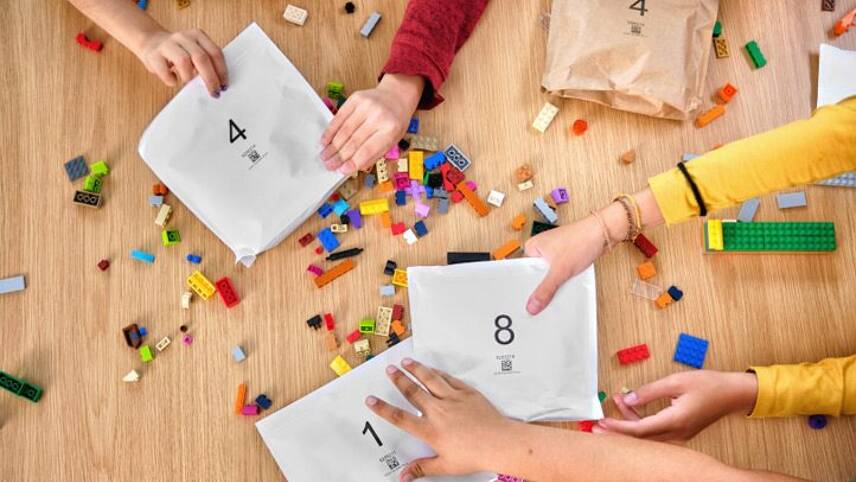Register for free and continue reading
Join our growing army of changemakers and get unlimited access to our premium content

The donated bricks from families and fans will undergo testing before they are reused or recycled.
During the initial trial phase of the new Lego Replay scheme, the donated bricks from families and fans will undergo testing for innovative applications, with the recycled materials being transformed into new items that contribute to educational initiatives in schools, such as storage boxes for toys.
In collaboration with charity partners, including In Kind Direct, Lego is ensuring that each newly crafted storage box is supplied with Lego bricks before being distributed to schools and community centres across the country, aiming to foster play and creativity.
Lego’s environmental sustainability vice president Tim Brooks said: “Our bricks are designed to be durable and safe enough to be handed down from generation to generation to inspire endless play and creativity for many years.
“Piloting Lego Replay in the UK is an important step on our journey to becoming more circular. We want to rehome, repurpose or recycle every Lego brick to keep them in play for longer.”
Based on the brand’s research, the majority of customers intend to pass on their used bricks to friends, family, or local schools, prompting the company to actively seek real-time feedback on customer preferences for donation methods and explore innovative ways to repurpose its products.
Initially introduced in the US in 2019 and later extended to Canada in 2021, the Lego Replay programme has resulted in the donation of more than 230 million Lego bricks by North American families.
News of the Lego Replay expansion to the UK comes in the wake of the brand’s announcement last year, acknowledging difficulties in eliminating virgin fossil-based plastics from its products, as certain recycled plastic alternatives currently bear a higher carbon footprint.
Five key ‘ingredients’ for reuse systems
In related news, environmental charity Hubbub has released a new report outlining five key insights for effective reuse systems.
The results stem from six reuse projects supported by more than £1.4m from Hubbub’s Bring It Back Fund, which was established in 2022 with support from Starbucks. Funding has been raised through a levy on single-use coffee cups.
The Fund supports an aim to kick-start reuse systems for food and drink packaging in the UK.
The trials, involving more than 100 food and drink businesses, showcased an average return rate of 57%, with some locations achieving rates as high as 92%.
The projects focused on city-wide returnable takeaway packaging, electronic tagging of reusable alternatives and doorstep packaging collections. Hubbub distilled key insights into five ‘ingredients’ for successful reuse systems:
- Make reuse convenient by minimising friction points
- Implement clear and consistent communications across various channels
- Emphasise environmental benefits and educate the public on the advantages of reuse
- Keep usage costs low and provide incentives for participation
- Ensure strong buy-in from on-the-ground teams promoting the reuse scheme
Despite concerns about the environmental impact of single-use packaging, the use of reusable options remains low. Hubbub’s research found that 29% of people intend to use reusable packaging but often forget to bring it with them.


Please login or Register to leave a comment.